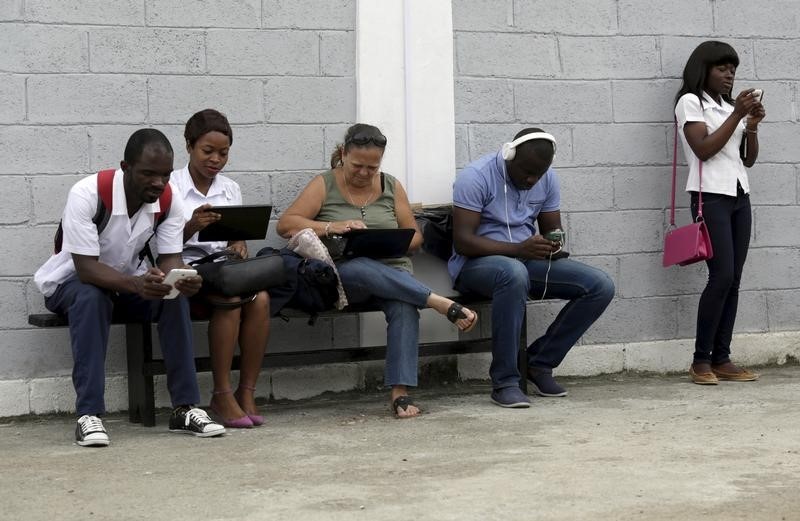By David Adams
(Reuters) - Cuba, a few decades late to the Internet era, is committed to getting the web into 50 percent of its households by 2020, as well as achieving 60 percent mobile phone access, a senior U.S. State Department official said on Monday.
Cuba has one of the lowest Internet and mobile phone penetration rates in the world, but the recent U.S. rapprochement toward the Communist-led island may have added pressure to modernize.
"I believe they are extremely eager to do so," said the State Department official, who spoke to reporters after officials from both countries met last week for telecommunications talks in Havana.
"They are falling behind, and that's denying their people access to knowledge and to the opportunity to grow as an economy and as a people, and they're aware of that," he added.
Barely 5 percent of Cubans have home access to the Internet, and scarcely 2 million out of its 11 million population have cell phones, according to U.S. officials.
Cuba's ability to reach the goals it agreed to under the International Telecommunications Union (ITU), a United Nations agency, will depend not just on political will, but also its ability to purchase needed infrastructure upgrades, the official said.
"There's real potential here if there's a real will on the Cuban side," he said. "As long as the Cubans create an environment that's attractive to investment ... and attractive to the delivery of services, I believe those services will reach the island."
The United States has set connectivity as a priority in its new relationship with Cuba. Telecommunications equipment, technology and services were among the first exemptions to the embargo after Washington and Havana announced on Dec. 17 they would restore diplomatic relations.
After last week's talks Cuba issued a statement saying the delegations exchanged information, but gave no details.
Cuban officials cite the U.S. embargo and as the reason for its weak development.
An exploratory team from Google (NASDAQ:GOOGL) visited Cuba this month and U.S.-based IDT Corp has also agreed with Cuba to provide direct international telephony.
The Geneva-based ITU ranks Cuba 125th out of 166 countries in telecommunications development. Ordinary Cubans mostly have access to state-controlled Intranet at workplaces and schools, or can pay for expensive Internet sessions by the hour at state-run outlets.

The U.S. official said Cuban official stated at the talks that they were committed to providing unrestricted Internet access.